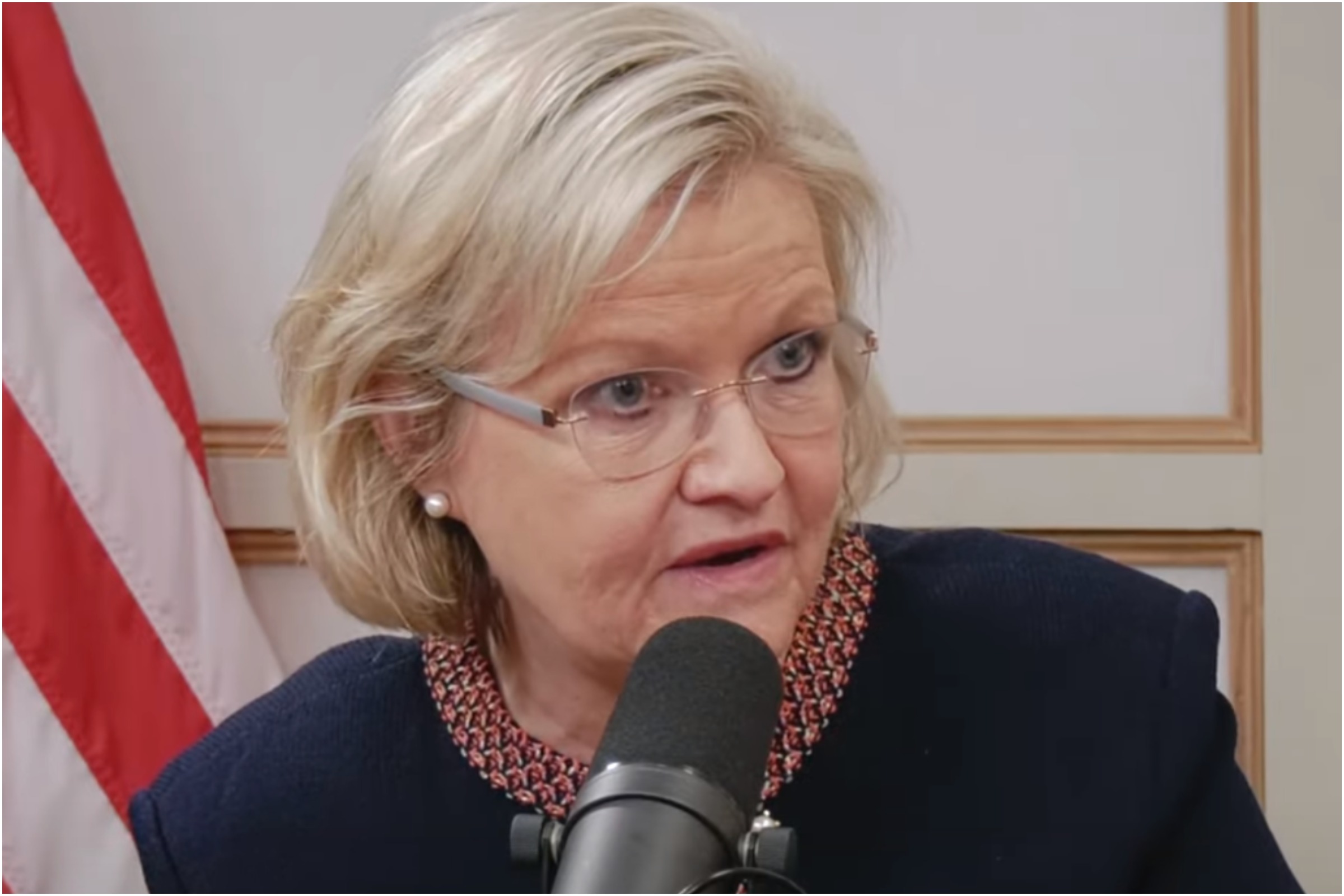How a Voter Fraud Conspiracy Theorist Ended Up on a U.S. Elections Panel
Attorney Cleta Mitchell has pushed unsubstantiated claims of voter fraud during the 2020 presidential election, and her recent appointment to the Board of Advisors to the Elections Assistance Commission (EAC) has drawn attention.
Mitchell participated in a January 2 phone call where then President Donald Trump told Georgia Secretary of State Brad Raffensperger he wanted to “find 11,780 votes.”
She has continued to suggest that the election was tainted by fraud and so her appointment to the EAC’s 35-member board may become a source of concern and criticism.
However, the EAC is a bipartisan body that has very limited authority and should not be confused with the much more powerful Federal Election Commission (FEC).
The EAC was created under the Help America Vote Act (HAVA) of 2002 and explains its role on its website.
“EAC is an independent, bipartisan commission charged with developing guidance to meet HAVA requirements, adopting voluntary voting system guidelines, and serving as a national clearinghouse of information on election administration,” it said.
“EAC also accredits testing laboratories and certifies voting systems, as well as audits the use of HAVA funds,” the website added.
The EAC issued a statement on Monday that did not directly address Mitchell’s appointment but explained how appointments to the Board of Advisors are made.
“The EAC does not make or approve appointments to the 35-member Board of Advisors. Board members are directly appointed by a wide variety of organizations, including but not limited to the National Governors Association, National Conference of State Legislatures, United States Conference of Mayors, and the United States Commission on Civil Rights,” the statement said.
When reached by Newsweek on Tuesday, the EAC offered no further comment.
Mitchell was nominated to the Board of Advisors by the United States Commission on Civil Rights (USCCR), another body with very limited influence that has not had statutory authority since 1996.
The USCCR issued a statement to Newsweek on Tuesday explaining how Mitchell had been nominated.
“Ms. Cleta Mitchell’s nomination was put forth by Commissioners appointed by
Republican authorities, including former President Trump, Senate Minority Leader
[Mitch] McConnell, and House Minority [Leader Kevin] McCarthy. Ms. Mitchell is not a member of the Commission on Civil Rights,” the USCCR’s statement said.
“The Elections Assistance Commission (EAC), which solicits nominations, requested the U.S. Commission on Civil Rights (Commission) nominate two advisors to the EAC 35- member Board of Advisors,” the statement went on.
“Ms. Mitchell is one of two Commission appointees selected by Commissioners to serve on the Board of Advisors to the Election Assistance Commission.”
“The EAC nominee [nominated] by Commissioners appointed by Democratic authorities was unable to serve and the Commissioners have re-nominated their candidate to the Commission’s remaining appointment to the EAC,” the USCCR explained.
That appointment will be considered at a meeting on November 19.
According to the USCCR, commissioners appointed by the Republican Party nominate two individuals and the commissioners appointed by the Democratic Party choose one of those individuals and vice versa.
The nominated people must then be confirmed by majority vote of the commissioners.
“Cleta Mitchell was nominated by Commissioners that were appointed by Republican authorities; and was ratified by majority vote of Commissioners,” the USCCR said.
Like former president Trump, Mitchell has claimed that the 2020 election suffered from fraud, telling The New Yorker in August that “there were more illegal votes cast than the margin of victory” in Georgia.
“The only remedy is a new election,” Mitchell told the magazine. She was also involved in helping to fund a controversial election audit in Maricopa County, Arizona which ultimately affirmed President Joe Biden‘s win there.

Cleta Mitchell/YouTube
*** This article has been archived for your research. The original version from Newsweek can be found here ***


